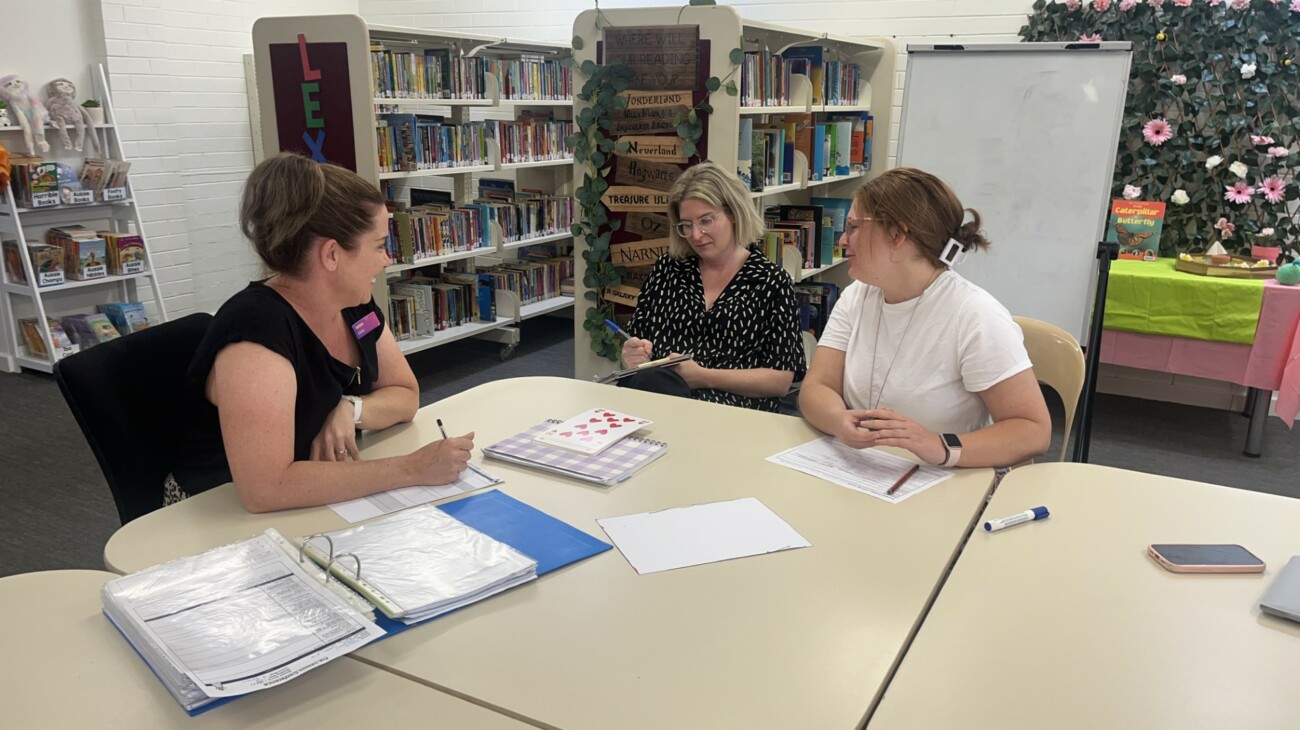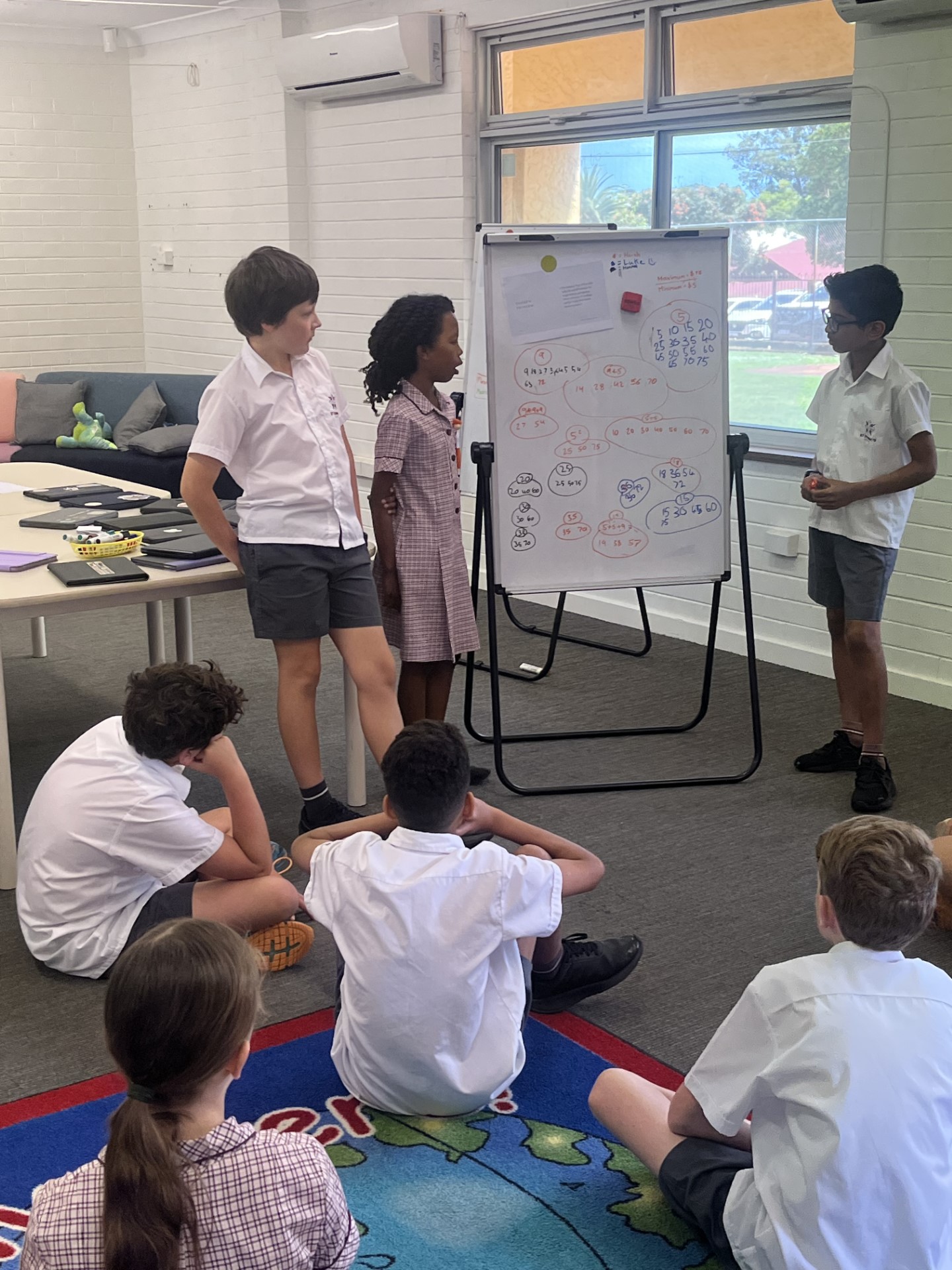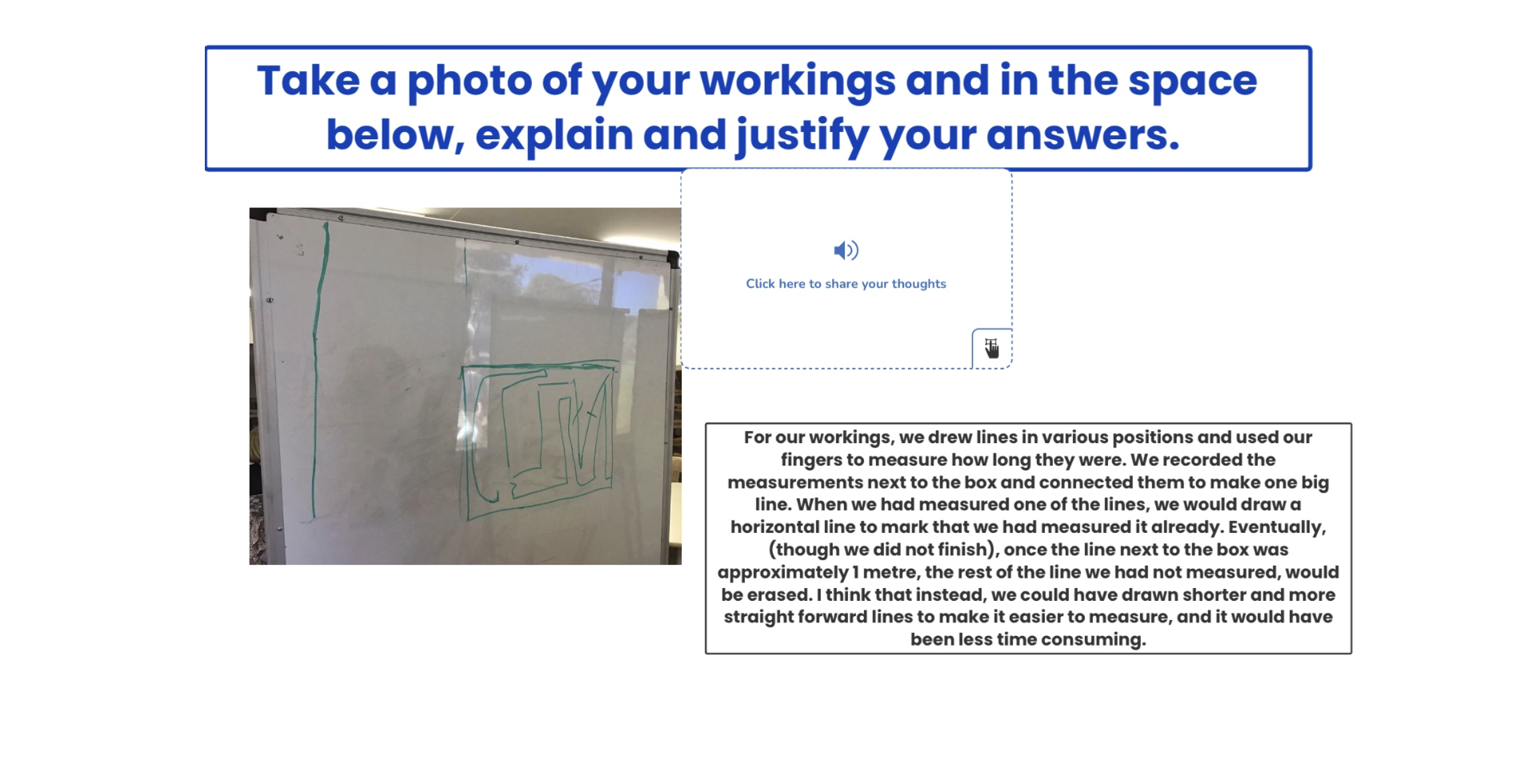Posted Tuesday, 20 May 2025
Scitech to spark science curiosity across the Kimberley
Scitech is embarking on an epic tour across the Kimberley, visiting 26 remote community schools.
Lighthouse Maths 2023 Coach Carley Foote discusses how the Powerful Problem-Solving Method used in Scitech's Lighthouse Maths program allows both teachers and students the opportunity to reflect.

Teachers are so busy. Lesson planning, teaching, playground duty, meeting the academic, social and emotional needs of students. We often don’t eat. We can’t get to the bathroom. Usually, our only ‘reflection’ in a normal school day is in the casual, “How was your day?” chat in the carpark with a colleague as we are leaving.
We know that at the heart of effective teaching is reflective practice, but in the reality of a classroom, we rarely get the opportunity to really reflect. Like, really, deeply and honestly reflect. But teaching is an art, and like any artist, educators need to hone their craft. In this pursuit, self-reflection becomes an invaluable tool, enabling teachers to refine their techniques, connect with students, and foster an environment of continuous improvement. The importance of teachers engaging in reflective practice cannot be overstated. John Dewey, a prominent philosopher and educational reformer, once said, “We do not learn from experience… we learn from reflecting on experience.”.
The Powerful Problem-Solving (PPS) Method used in the Lighthouse Maths program is a structured approach that guides both educators and students through targeted and purposeful reflection by asking probing questions and providing the time and expertise to allow for reflecting in a deep and empowering way. Reflection is at the crux of the structure of the program and is consciously timetabled into the PPS approach for both students and teachers.

Students reflect and explain their process to peers in the “discuss” phase of the PPS lesson.
For students, PPS encourages reflection within the “discuss” phase of the lesson – this is where the true power of this approach comes to light. Students get the opportunity to share their solutions and findings after investigating a posed problem and can then reflect on their learning as a group. In this way, children can engage in deep mathematical discussions and come to find conceptual understanding by examining the reasoning of other students.
In one PPS lesson about the Magic V, children were asked to place each of the numbers 1 to 5 in a V shape, so that the two arms of the V have the same total. It was incredible to watch the enlightenment in one of Sophie Carmody’s students at Hillcrest Primary School during a discussion around the link between odd and even numbers. While working on the problem with her group, she couldn’t find a connection between the properties of odd and even numbers and how this would help her to generalise in this context. It was only during the “discuss” phase of the lesson that the big “uh ha” moment happened – she suddenly came to realise that odd + odd = even and even + even = even. Through discussion and reflection, she was able to make a very specific and relevant comment, by connecting her process and strategy to that of another group.

Following a PPS lesson, student reflections can be recorded as images, voice notes and written text to encourage detailed consideration of their mathematical process and understanding of the posed problem.
Reflective practice built into the PPS approach isn’t just a powerful tool for students—it’s a game-changer for teachers. Throughout the program, teachers are supported in using reflective insights to refine their approach to content delivery. During coaching, teachers consider the efficacy of strategies previously applied in their classroom and use their insights to continuously improve PPS lesson plans, with the intention of deepening all students’ conceptual understanding of the main ideas in the lesson. During pre-lesson planning, coaches also assist teachers to anticipate where individual students may struggle with the content. With this in mind, teachers can plan for the provision of tailored support to address unique student needs as they arise.
The lesson debrief is also a critical part of each coaching round, in which the coach and the teaching partner are all involved in reflecting on the lesson outcomes. Sarah Carberry from Liwara Catholic Primary School said, “The debrief sessions have been imperative for our further lessons/sessions to help us identify the goal for the next whole class lesson. I think, being given to opportunity to identify and discuss the students’ strengths and weaknesses, has been invaluable.”
Verlaine Codrington, from Hillcrest Primary School, says, “I think probably the most valuable part of the reflection sessions has been the fact that many times my instincts about how I could have improved a lesson or changed the flow of the lesson to better reach my goal for the students, was reflected by both you (coach) and Sophie. This helped to build my confidence and improve each problem-solving experience for my students. “
Through careful examination, teachers can pinpoint areas in which their students excel and areas that require development. In doing so, they can adjust their instructional strategies to better serve their students. We just need the time to do it!
My experience as a coach this year has allowed me to really see, firsthand, the value and the importance of truly reflecting. I would ask myself “how could I do that better” or “did they get it?” all the time, but my reflections were very superficial. Now, the questions I ask of myself, and the teachers that I work with, are much more probing.
Did your students reach the goal you set?
What evidence did Johnny show that he achieved the goal?
How can we extend Johnny’s thinking to deepen his understanding of the key concepts?
One of the most significant benefits of reflection in education is its role in promoting lifelong learning. When teachers and students develop the habit of reflecting on their experiences, they are more likely to continue seeking knowledge and self-improvement long after formal education ends.
The author is a participant of Lighthouse Maths, supported by Chevron.
Upon clicking the "Book Now" or "Buy Gift Card" buttons a new window will open prompting contact information and payment details.